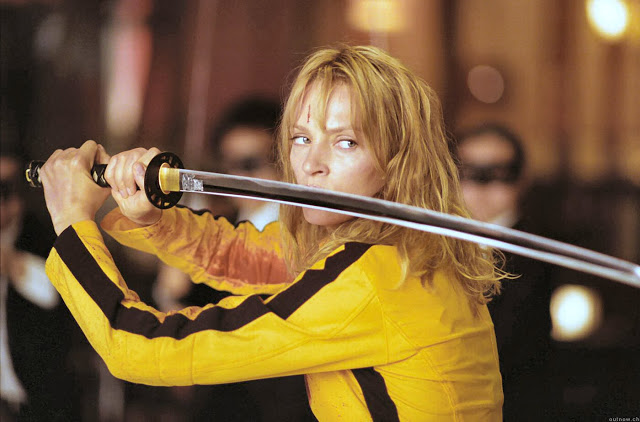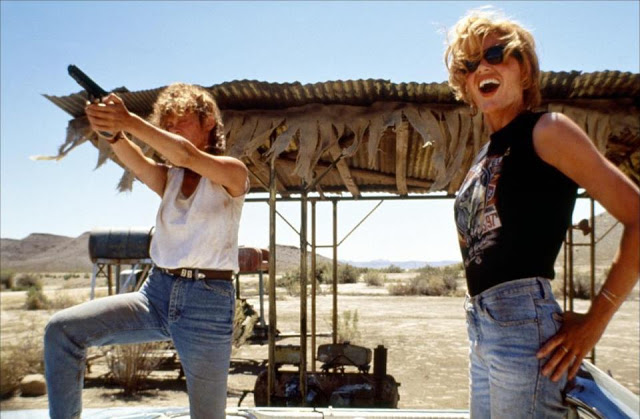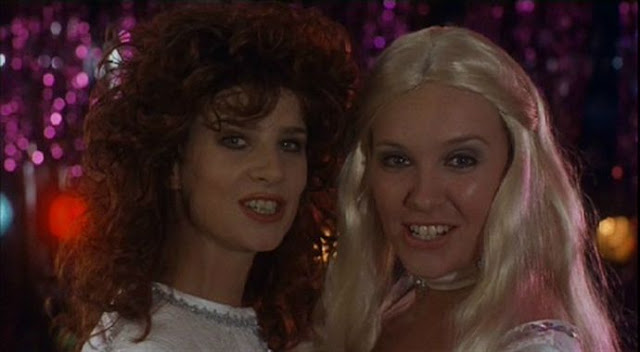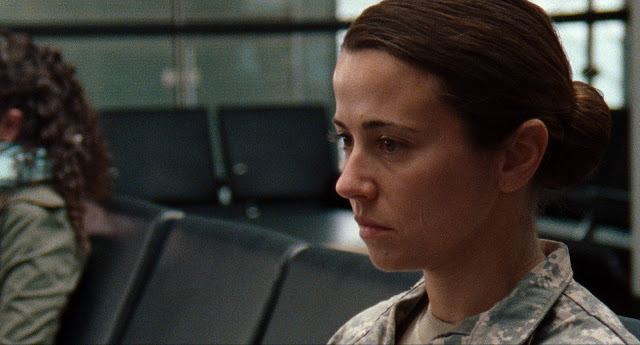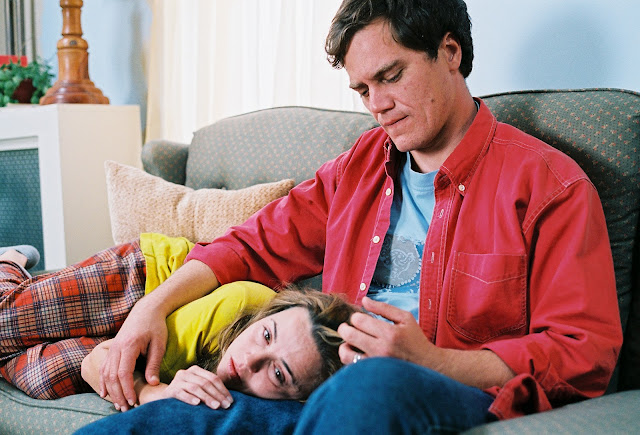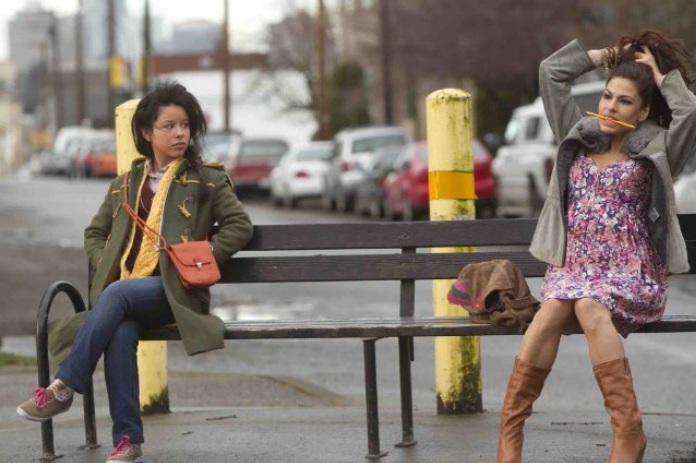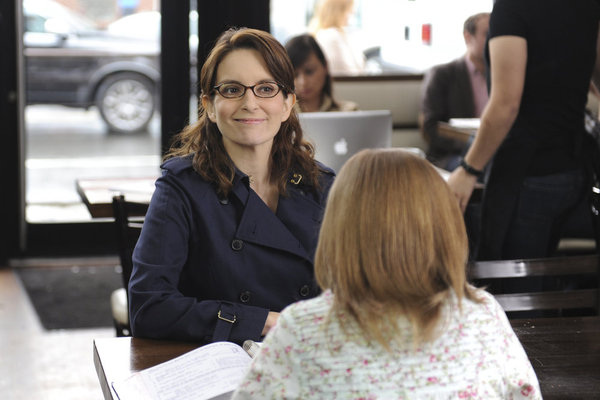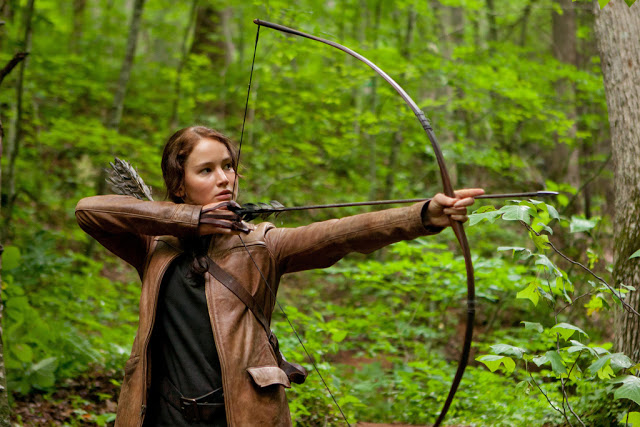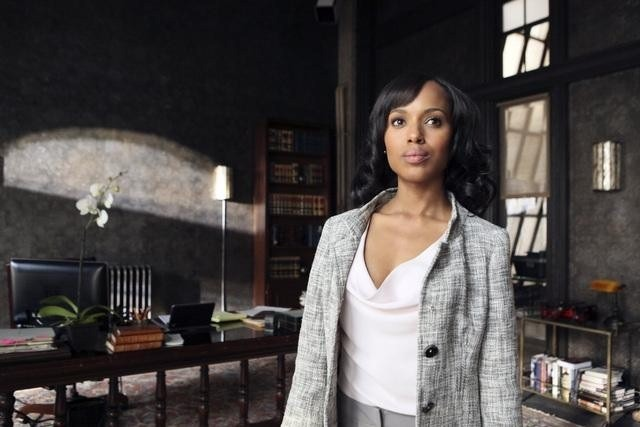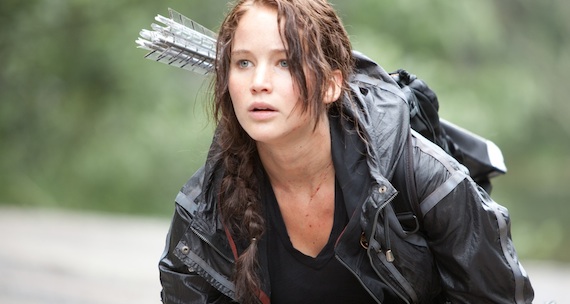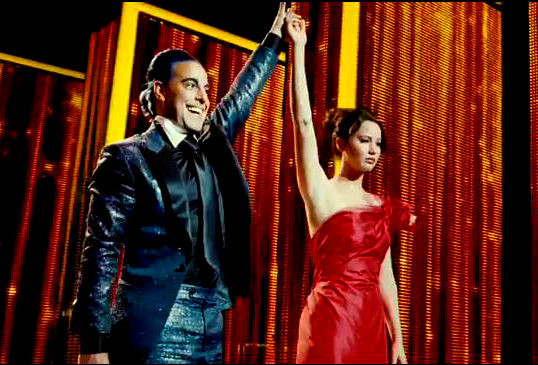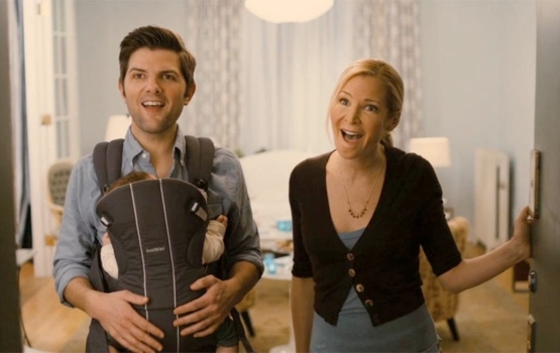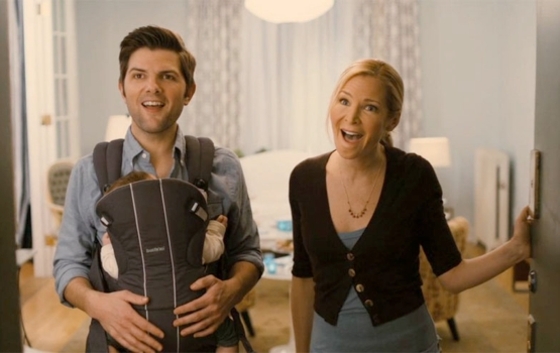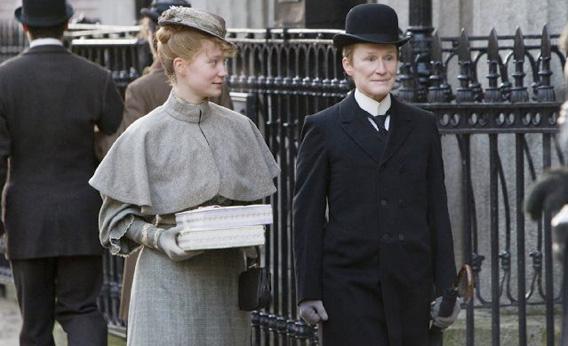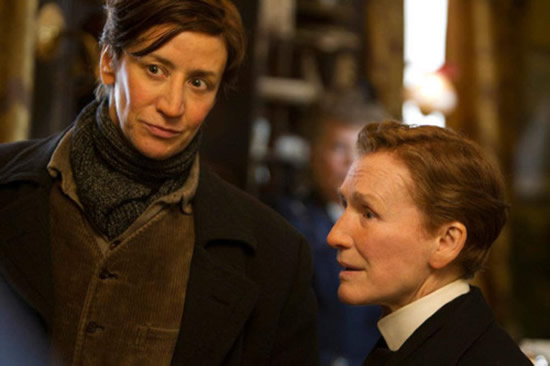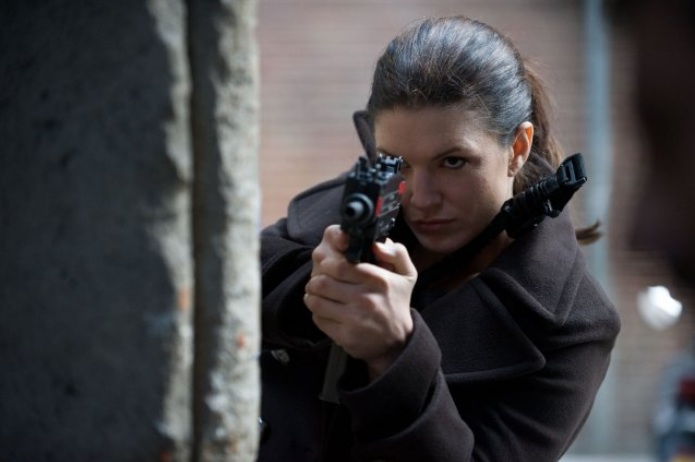 |
| Jennifer Lawrence as Katniss Everdeen in The Hunger Games |
Part 1 of the Review in Conversation on The Hunger Games.
Megan’s Take:
In a dystopian future, the nation of Panem stands where North America once existed. The government at the Capitol, which controls the country, mandates a girl and boy between the ages of 12 and 18 are selected by lottery in each of the 12 Districts as tributes to compete in a fight to the death called the Hunger Games aired on live television. 16-year-old Katniss Everdeen volunteers when her little sister Prim’s name is called. But in the Hunger Games, only one person can survive.
I devoured The Hunger Games trilogy, reading all 3 books in a matter of 2 days. Katniss descends from a line of strong literary female protagonists (Karana in Island of the Blue Dolphins, Miyax in Julie of the Wolves, Jo March in Little Women, Anne Shirley in Anne of Green Gables, Jane Eyre, Meg Murray in A Wrinkle in Time, Hermione Granger in Harry Potter) for young adult readers. The story echoes themes in The Lottery, The Most Dangerous Game, Gladiator, 1984, Island of the Blue Dolphins and Battle Royale, yet forges a new path. The female-centric series’ haunting themes – poverty, war, sacrifice, love, starvation, media influence, government control, class difference, and economic inequity – riveted me. The books’ memorable characters lingered long after I closed the pages. I didn’t want to say goodbye. So my expectations for the film were high when I saw the midnight premiere.
 |
| Jennifer Lawrence as Katniss |
While other female film franchises exist, no female-centric movies aside from
Twilight,
Bridesmaids and
Mamma Mia have experienced this meteoric success. Some people
pit Katniss and Bella against each other as if there isn’t room in this world for both. While I’m no fan of the
Twilight Saga (I’ll admit it makes me want to gouge my eyes out), putting them in a dichotomy implies girls and women can only identify with either Katniss OR Bella, not both or neither. Thankfully,
others question this comparison.
I thought the movie was fantastic. I often lament the lack of strong female protagonists in film. We desperately need more characters like Katniss on-screen. A skilled archer, Katniss is smart, stubborn, brave, abrasive and self-reliant. She not only fights for her own survival; she’s compelled to protect her family. Living in the most impoverished neighborhood in the poorest of the 12 Districts, Katniss is the resourceful breadwinner, illegally hunting for food to feed her family. She’s a surrogate mother to her sister Prim and even her own traumatized mother, grief-stricken over the death of her daughters’ father. Despite her tough exterior, she possesses a vulnerability. What makes Katniss unique is that she “feels empathy when nobody else does.” She’s compelled to defend others, even her competition.
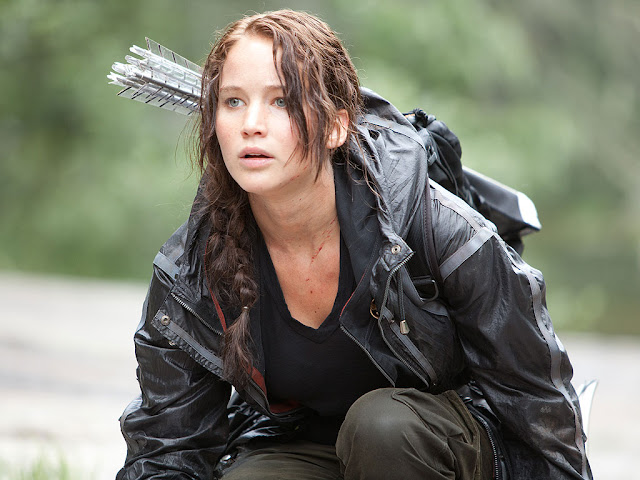 |
| Jennifer Lawrence as Katniss |
Jennifer Lawrence’s powerful performance as the “Girl on Fire”
has been lauded by critics. And rightfully so. She’s stunning, perfectly conveying strength, rage, fear, and vulnerability through her body language, a flick of her eyes, never needing to utter a single word. She trained in
archery, free running, yoga, climbing and combat. Regarding Lawrence’s casting as Katniss, director Gary Ross, moved by her powerful audition, called it “
the easiest casting decision” of his life. Author
Collins also fully supported Lawrence as Katniss.
The casting call, however, wanted an “underfed but strong” actor, and was
limited only to “Caucasian” women. What. The. Fuck. I mean really, Hollywood?? No, women of color could even audition?! Collins describes Katniss’ appearance in the book as olive skinned with black hair. Hello…that could be tons of female actors of color! Why the hell must she be white?! You’re going to exclude young women of color and, on top of that, you only want malnourished-looking women?! Yes, starvation is a vital issue in the series. But in the book, Katniss says she possesses lean muscles from hunting.
Amber’s Take:
I agree with all your comments on Katniss being a strong female protagonist, and what a relief it is for a franchise fronted by a young woman to win the box office (as of this writing) four weeks in a row. Although the Twilight comparisons irk me, too, they almost seem inevitable, as so few big Hollywood releases have featured female protagonists. As with so many Hollywood franchises, however, this one takes a small step forward: a strong young woman is in the lead, but she is whitewashed to “play it safe” with the viewing public. Although the film is set in—and was filmed in–modern-day Appalachia, I see no reason why the lead needed to be “Caucasian.”
I have to talk about the “body snarking,” because while I would never call Jennifer Lawrence “too big” to play Katniss, she is older than Katniss. The 17-year-old Lawrence who starred in
Winter’s Bone would have been a more convincing 16-year-old Katniss than the actor at age 21. Women in their 20s playing teenagers certainly isn’t a new thing (how many times have you watched a movie or TV show and noticed twenty-somethings playing high school students?), but the tendency for this to happen does create unrealistic expectations for teenage girls and conflate girlhood with womanhood. I think this problem will only become more apparent in the following two films of the series, too.
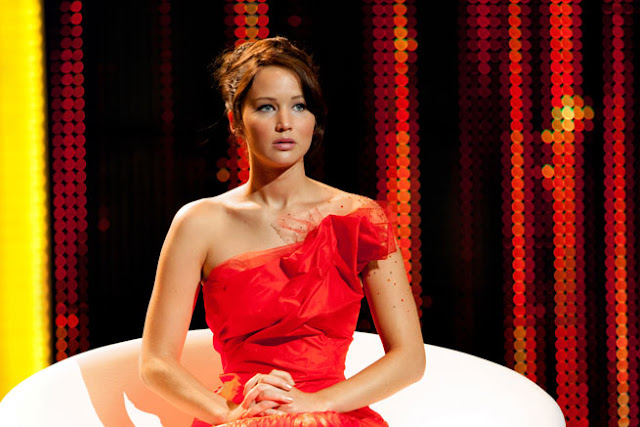 |
| Jennifer Lawrence as Katniss |
Much has been said about Lawrence’s body, but I’m not really interested in analyzing it—the incessant discussion of female bodies is part of the problem. What I do want to discuss is the film’s handling of food and hunger (a conversation I think many people are sincerely trying to have who end up derailing into critiques of Lawrence’s body). Everyone in District 12 is hungry, including Katniss. Winning the Hunger Games isn’t just about surviving; it’s also about bringing extra food home to your district—especially important for the poorer areas. The Capitol uses hunger as a political tool—a fact that doesn’t come through clearly enough in the movie. (An anecdote: The person who saw the movie with me didn’t understand why it was called The Hunger Games.)
 |
|
In the book, Katniss eats and enjoys the plentiful food provided to her in the lead up to the game. She finds a particular lamb stew rich and delicious and she enjoys eating it until she’s full. For a girl who’s been hungry much of her life, the food available on that train trip would be irresistible. Yet in the movie, Katniss seems uninterested, even immune to the lavish spread. Is there a reason Katniss can’t enjoy a hearty stew to fortify herself for the impending game? This de-emphasis of food changes the character of the story dramatically. Remember the moment when Gale presents a roll to Katniss in the woods and she exclaims “Is this real?!” and they break the roll to enjoy together? The berries Katniss and Peeta threaten to eat in their Romeo-and-Juliet-style sabotage of the game? The story of nourishment and consumption takes a major hit when the movie doesn’t permit Katniss to eat and enjoy food and, for me, this might trump whatever positive body-image message might be implied by the decision to cast Lawrence without regard to the “underfed” description in the casting call, and without regard to her adult status.
Megan’s Take:
I didn’t really have a problem with Lawrence being older than Katniss. Although I totally agree about the concern for girls “conflating girlhood with womanhood.” But I suppose it didn’t bother me so much because Katniss is never sexualized. She cares about archery, not what she’s wearing. While Katniss receives a pageant-style makeover, so do the male tributes. While it hints at it, I just wish the movie had conveyed the book’s satire of toxic beauty standards.
I could NOT agree more with you on the themes of hunger and food or rather how they’re severely diminished almost to the point of erasure in the film. As a feminist vegan, I’m passionate about food justice and our relationship with food. Food and hunger are vital themes in the trilogy. Food is used as a reward while withholding food a punishment wielded as a weapon against Panem’s citizens. While the movie hints at these themes through the Capitol’s citizens’ garish costumes versus District 12’s simple garb or the lavishness of food at the Capitol, it doesn’t fully capture the book’s themes of food justice, food shortages, hunger and class inequities.
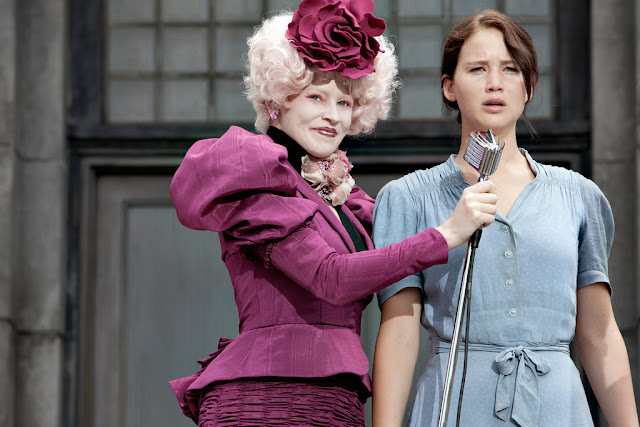 |
| Elizabeth Banks as Effie Trinket and Jennifer Lawrence as Katniss Everdeen |
It’s rare to see an impoverished protagonist and a film contend with economic inequities. Even within the impoverished District 12, there are class distinctions. In the book, Katniss tells Peeta he doesn’t understand her desire to not owe anyone anything because he’s not from the Seam, the poorest neighborhood in District 12. The reason Gale had his name in the Reaping 42 times was so he could obtain more rations for his family. Katniss continually describes food and she always gorges herself like she’ll never eat again…because she doesn’t know if she will.
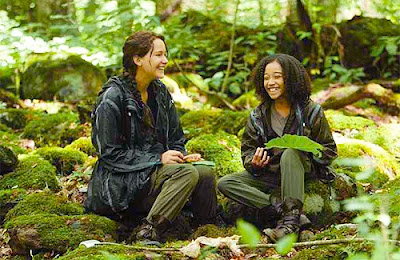 |
| Jennifer Lawrence and Amandla Stenberg as Rue |
I too didn’t understand the de-emphasis of food and hunger. In reality, 1 in 6 children suffer from hunger. And I too loved Collins’ descriptions of food, like Katniss relishing her favorite nourishing lamb (dislike) stew with dried plums (yum!) and the sweetness of hot chocolate touching her lips for the first time. And of course there was the continual symbol of bread — the warm and fragrant bread accompanied by Prim’s cheese Katniss eats with Gale, or Peeta’s burned bread that saves her life years earlier, or District 11 sending Katniss a loaf of bread for her alliance with Rue (who was from District 11) as a symbol of solidarity and quiet revolution, which the film eliminates, showing the citizens (many of whom are people of color) rioting instead.
Society equates food with morality — healthy food is good, decadent food sinful. While eating should be a sensual experience, through diet ads the media constantly tells us that women shouldn’t enjoy food. Food is constantly a threat to women’s bodies and we must resist its seductive allure. That’s why it was so refreshing to read Katniss’ delight in savoring food.
Beyond nourishment, I saw hunger serving as a metaphor for consumption — consumption of merchandise and media with its gravitational pull of reality TV and celeb culture. To eliminate the message of food, hunger and consumption dilutes its powerful message.
Amber’s Take:
The film really diminished a lot of powerful themes and messages from the book, and I couldn’t agree more with you about minimizing injury, or what equates to erasure of disability. Ironic that the book has the Capitol “fixing” disability, but the film itself erases it–making the filmmakers the Capitol. We — the viewers — are already in the uncomfortable position of watching the Games much like the Capitol citizens (something else the film minimizes, I think).
In a way, it’s funny that we haven’t really talked about violence, and how — in order to get a PG-13 rating — the film sanitized violence. The books are intended for a Young Adult audience, but are filled with brutal murders. The movie is, too, and I think we could see the de-emphasis of violence as either positive or negative: Positive in that the movie doesn’t glorify violence, or depict it graphically (which movies do too much of in general), but bad in that the movie isn’t as dark or complex as it could have been. While I realize that a filmmaker must make difficult choices when adapting a book (series), every choice made about The Hunger Gamesmade it safer — and more likely to not put off, offend, or disturb mainstream viewers. In essence, making it a successful blockbuster.
Stay tuned for the next part of the Review in Conversation on The Hunger Games, in which we’ll discuss race in the world of the film, female relationships, and that love triangle.
Amber Leab is a Co-Founder and Contributing Editor to Bitch Flicks.
